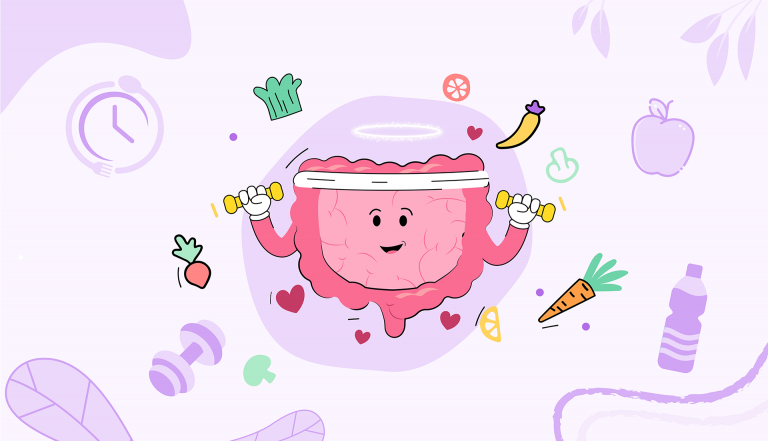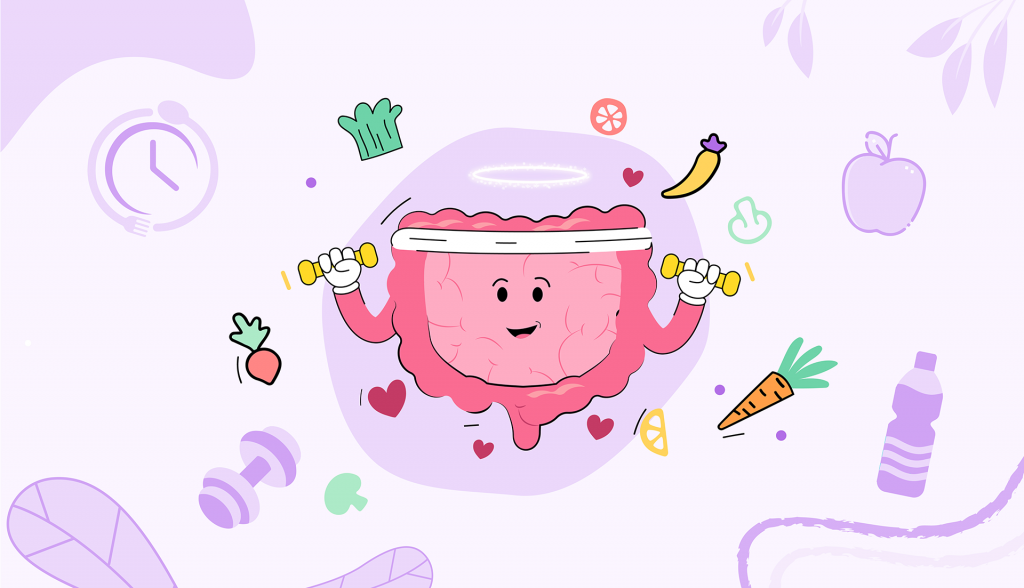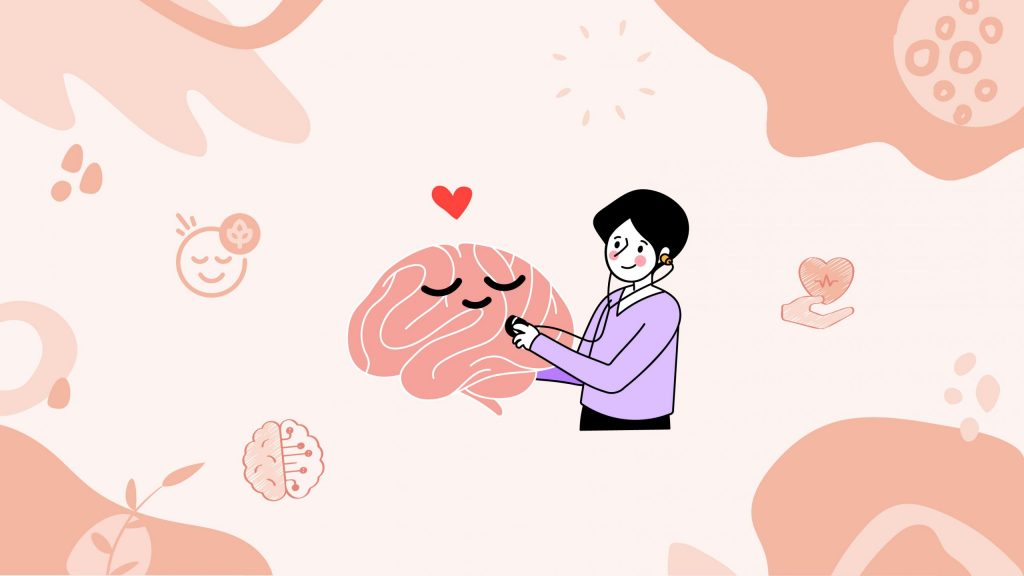When Your Gut Speaks Up
Ever had that “gut feeling” that something was up? Well, it turns out, it’s not just a metaphor and there’s more to it than just an old saying. Many of us actually feel real, tangible things happening in our bellies during moments of stress, excitement, or nerves. You know, like those jittery butterflies before a big presentation or that urgent dash to the restroom before an important event. And let’s be honest, these gut reactions are more than just a minor annoyance; they can really throw a wrench in our day. They make it tough to concentrate during meetings, impact our enjoyment of social outings, and are generally tricky to tame with sheer willpower alone. Who knew our guts could talk so loud, right?
Imagine this: you’re about to step onto the stage, or you’re sitting across from your boss at the annual review, and suddenly, your stomach twists into a knot. Sounds familiar? It’s like your gut has its own mind, reacting to your emotions before you can fully process them yourself. This isn’t just you being nervous; this is your body communicating in its own cryptic way.
It’s funny when you think about it – here we are, trying to manage our day-to-day with all the grace we can muster, and out of nowhere, our gut decides to chime in with its two cents. This can lead to some awkward moments, like scouting for the nearest bathroom while trying to maintain your composure or trying to suppress those stomach gurgles during a quiet moment in a meeting.
But it’s not just about the uncomfortable moments. This chatter from below can actually clue us into deeper health messages. Maybe it’s telling us to slow down, eat better, stress less, or all of the above. So, while it might be a bit of a hassle, our gut’s little rumbles are worth listening to — they’re often smarter than we give them credit for.
Decoding the Gut-Brain Connection
But why exactly does your stomach churn when you’re nervous? The intriguing answer lies in the sophisticated gut-brain connection. This dynamic relationship is mediated by a bi-directional communication network famously known as the vagus nerve. This nerve acts as an information superhighway, transmitting signals from the brain to the gut and vice versa, allowing for a continuous dialogue between the two.
At the heart of this interaction is the gut microbiome, an ecosystem made up of trillions of bacteria residing within your digestive tract. These microorganisms are far more influential than you might imagine. They are busy chemical factories producing various substances, including key neurotransmitters like serotonin, which profoundly influence mood and emotional well-being. Remarkably, a substantial portion of the body’s serotonin is synthesized in the gut. This means that any imbalance in your microbiome can directly sway your emotional state, potentially leading to anxiety or depression.
The plot thickens with the involvement of the immune system within the gut-brain axis. Under stress, the immune response can induce inflammation throughout the body, including the gut. This inflammation not only heightens gastrointestinal discomfort but can also adversely affect mental health. Thus, what starts as a nervous feeling can spiral into a relentless cycle of stress and digestive turmoil, illustrating the complex and critical nature of the gut-brain relationship.
A Balanced Approach to Nurture Your Gut
Optimizing your gut health to enhance brain function is a deeply impactful strategy that can yield substantial benefits. Here’s how you can practically apply this knowledge with actionable steps and helpful tools:
- Diet: Foundation of Gut Health
- Incorporate Probiotics and Prebiotics: Start by enriching your diet with foods that support gut health. Include probiotics such as yogurt and kefir, which introduce beneficial bacteria into your gut. Add prebiotics like bananas, garlic, onions, and whole grains that fuel these beneficial bacteria. A balanced diet supports a healthy microbiome, which in turn influences brain health and mood stability.
- Use Apps for Dietary Tracking: Consider using a food tracking app like MyFitnessPal or a dedicated gut health app to monitor your intake of fibers, probiotics, and prebiotics. These tools can help you maintain a balanced diet by providing insights into your nutritional habits and suggesting improvements.
- Stress Management: Calming the Mind-Gut Connection
- Engage in Mindfulness Practices: Regularly practicing mindfulness, meditation, or yoga can significantly reduce stress levels. Tools like the Headspace app offer guided meditation sessions that can help ease the mind, thus soothing the gut-brain communication via the vagus nerve.
- Schedule Regular Yoga: Utilize apps like YogaGlo or classes at a local studio to incorporate yoga into your routine. Yoga not only helps in reducing stress but also promotes physical health, further supporting gut function.
- Physical Activity: Enhancing Gut Health Through Movement
- Stay Active: Regular physical activity is crucial in maintaining a healthy microbiome. Engage in activities that you enjoy, such as walking, cycling, or swimming, to ensure consistency. Using a fitness tracker like Fitbit or apps like Strava can help you monitor your activity levels and keep you motivated.
- Sleep: Ensuring Restorative Rest
- Optimize Your Sleep Environment: Create a sleep-conducive environment by reducing noise and light exposure before bedtime. Consider tools like blackout curtains and white noise machines to enhance the quality of your sleep.
- Monitor Sleep Patterns: Use sleep tracking devices such as the Sleep Cycle app or wearable technology like the Apple Watch to monitor your sleep quality and duration. These tools can help you understand your sleep patterns and identify areas for improvement, such as adjusting your bedtime or reducing nighttime disturbances.
Subscribe to newsletter
Get your Gut Health Starter Guide right now.
Elevate your Tuesdays with practical, science-backed wisdom propelling you forward on your gut health journey.

From Discomfort to Discovery
Jane, a dedicated middle school teacher, had been battling chronic anxiety and gastrointestinal issues for years, which began to erode her ability to teach and enjoy life. “It seemed like no matter what I did, my stomach was always in knots and my mind clouded with anxiety,” Jane shared, reflecting on her struggles before she had an enlightening conversation with her doctor about the gut-brain connection.
Jane’s daily routine had been a battle with discomfort, both mental and physical. Mornings were rushed, lunch was often skipped, and her evenings ended with her feeling exhausted and unfulfilled. The turning point came when Jane attended a wellness workshop that introduced her to the powerful link between gut health and mental well-being. Inspired, she decided to make incremental but meaningful changes to her lifestyle.
She revamped her diet to include a variety of fermented foods like kefir and sauerkraut, which introduced beneficial bacteria into her gut, and increased her intake of high-fiber foods like oats and legumes to support these microbes. Jane also incorporated yoga into her routine three times a week, which not only helped in stretching and physically relieving tension but also served as a practice of mindfulness that calmed her nervous system.
“The changes I made were gradual, but the effects were immediate and profound. My digestion started to improve within a few weeks, and my anxiety levels decreased noticeably. It was as if a mental fog had been lifted, allowing me to think more clearly and creatively,” Jane recalls with a smile. “Now, I sleep better, feel less anxious, and enjoy my meals without discomfort. Yoga has become a cherished part of my day that I look forward to, not just for the physical benefits, but for the peace and clarity it brings.”
Jane’s experience underscores the profound impact that nurturing the gut-brain connection can have. It transformed her from a state of constant anxiety and discomfort to one of vitality and balance. “Taking care of my gut health has not just improved my digestion, it’s revitalized my entire approach to life. I feel like I’m not just surviving each day, but thriving.”


















